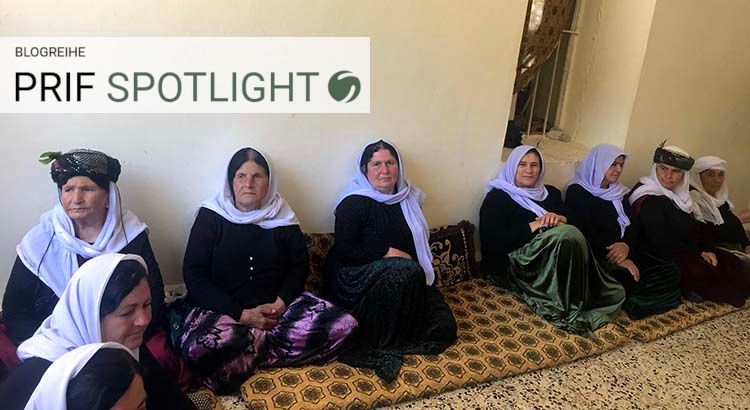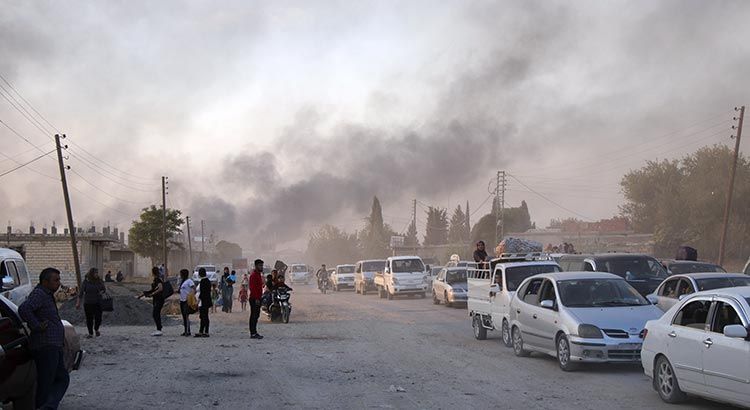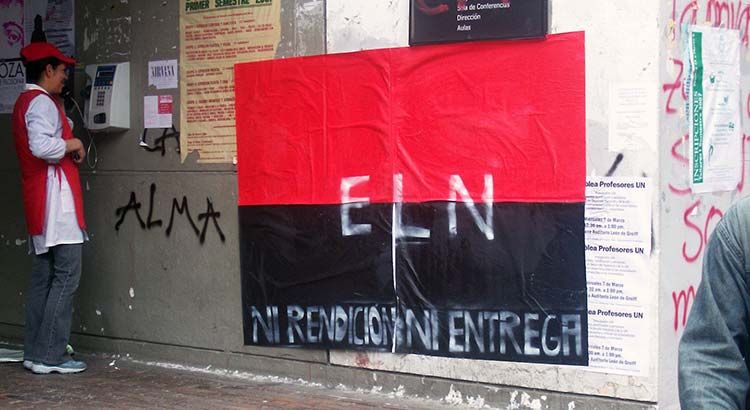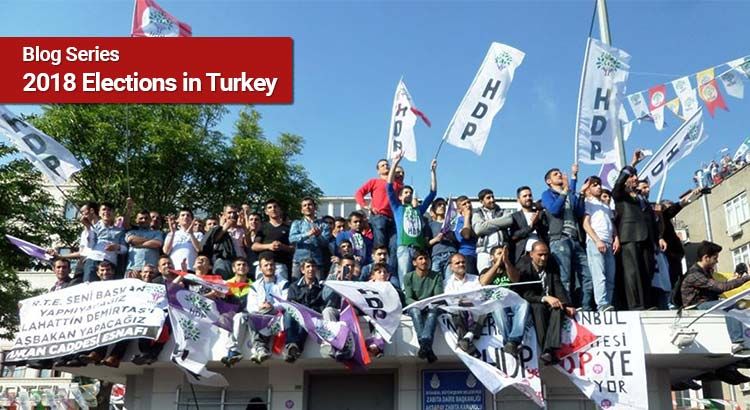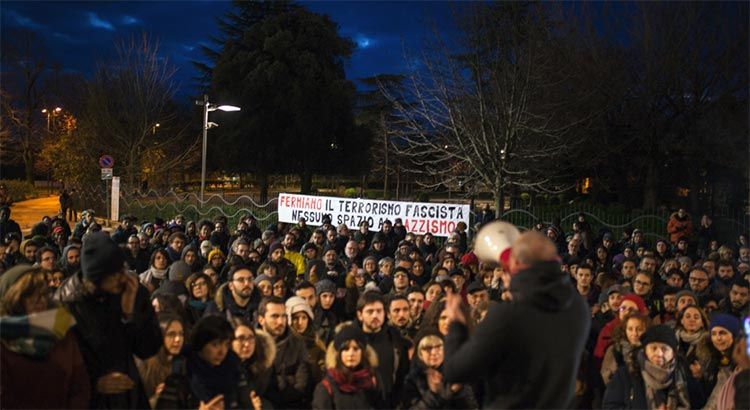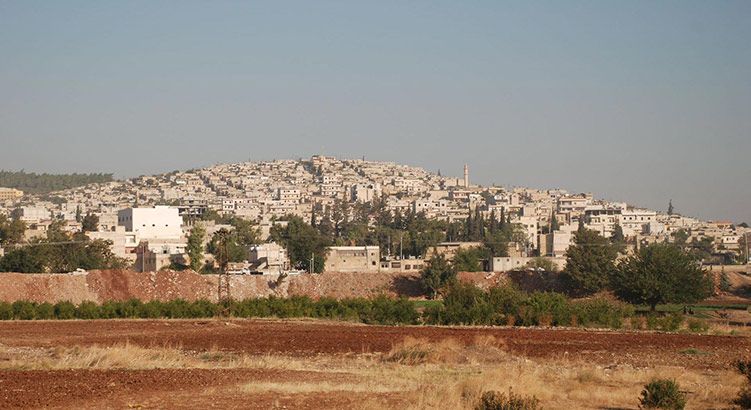Author: Francis Patrick O'Connor
Dr. Francis O’Connor was a postdoctoral researcher at PRIF from 2017-2019. He is currently a research associate at the Centre on Social Movement Studies (COSMOS) Florence. | Twitter: @MonageaFrancis
As the international memory of ISIS’ genocide against the Yezidi population of Şengal in Northern Iraq recedes, its victims have been left to languish increasingly hopelessly, in refugee camps with little realistic prospect of returning to their homes. Tens of thousands of displaced Yezidis remain dispersed across Northern Iraq, hundreds of kidnapped Yezidi girls and women are unaccounted for and the fates of many of their male relatives unknown. In the short term, there is an urgent need for international protection from further attacks, the recognition of a political status for Şengal and immediate aid for refugee camps to create the conditions for Yezidi genocide survivors to return, resettle and gain a sense of political stability and empowerment.
Turkey’s Invasion of Northern Syria Has Begun
Turkey’s long threatened invasion of Northern Syria has begun. Following a phone call with Tayyip Erdogan on Sunday, October 6th, President Trump ordered US troops in the Combined Joint Task Force - Operation Inherent Resolve (CJTF-OIR) to withdraw from the border area where they had been conducting joint security patrols with the Syrian Defence Forces. After ensuring that the invading forces would not clash with its NATO US military counterparts, Turkish aerial bombardment and land invasion has begun. The international community, especially Turkey’s NATO allies, should do more than just ask for restraint.
Far-right terrorism: Academically neglected and understudied
The terrorist attack in New Zealand which resulted in 50 deaths and multiple injuries is a bloody and tragic reminder of the threat posed by the far-right. The world has been scarred by an upsurge in far-right attacks, many perpetrated by lone actors. Yet, recent research has demonstrated that the far-right is dramatically understudied in comparison to other forms of violent radicalisation.
War returns to Colombia
On January 17, the National Liberation Army (ELN) attacked the General Santander Police Academy in Bogota, resulting in 21 deaths and more than 70 wounded. Beyond the sheer number of victims, the attack is notable because it targeted a well-protected facility in the heart of the Colombian capital. In the wake of the attack, the government definitively ended the faltering peace negotiations with the ELN in Cuba.
De regreso a la guerra en Colombia
El pasado 17 de enero, un atentado del Ejército de Liberación Nacional (ELN) en la Escuela de Policía General Santander en Bogotá, resultó en 21 muertos y más de 70 heridos. Más allá del número de víctimas, el ataque se destaca por ser una acción sin precedentes contra una instalación bien protegida en el corazón de la capital colombiana. Ante este ataque el gobierno dió fin definitivo a las vacilantes negociaciones de paz entre el ELN y el gobierno colombiano que se habían estancado en Cuba.
The HDP’s Performance in Turkey’s Authoritarian Electoral Campaign
Contrary to some predictions prior to the election, the incumbent President Recep Tayyip Erdoğan comfortably succeeded in winning the Presidential election (52.6%) without the need of a second round of voting. His party, the AKP obtained a parliamentary majority (53.7%), in coalition with the far-right MHP. However, the elections were held in an electoral environment characterised by a number of inherently antidemocratic limitations on opposition parties’ campaigns and the widespread occurrence of intimidation and violence. The experiences of the HDP exemplify some of the most blatant features of state led authoritarian interference in the campaign.
Why are some Italians shooting migrants? Far-right terrorism, anti-migrant discourse and the Italian election
On Saturday February 3rd, a 28 year old far-right activist Luca Traini went on a shooting rampage in the small town of Macerata in central Italy. Over the course of a few hours, he randomly shot and wounded 5 men and one woman of African origin. He was eventually apprehended by police wrapped in an Italian flag, in front of a monument to Italy’s war dead, performing the Roman salute and screaming “Viva l’Italia”. Traini claimed that he had heard a radio news report detailing the arrest of a Nigerian drug dealer as a suspect related to the local death of a teenage girl Pamela Mastropietro, when he decided to get his legally held gun and “kill them all”, referring to the local African community. Notwithstanding the attack’s evident racial motivations, the aftermath of the shootings has been framed in terms of migrants as a source of tension rather than focusing on the far-right milieu as a generator of political violence.
Turkey’s Invasion of Afrin must be Halted
Turkey’s ‘Operation Olive Branch’ is a marked escalation of its campaign against the Kurdish autonomous regions in Syria. The battle for Afrin, a mountainous, well defended region protected by a battle hardened Syrian Democratic Forces (SDF) forces will likely be protracted and lead to significant civilian casualties, due to Afrin’s large community of internally displaced Syrians. It will further compound the ongoing conflict against Kurds in Turkey and lead to, as of yet, unclear regional ramifications.
The Knife Attack in Hamburg: Lone Actor Violence and Mental Illness
On the 28th of July, a 26 year old man, Ahmad A. launched a knife attack in a supermarket in the Barmbek area of Hamburg, wounding four people and killing one. He fled the scene of the attack before being forcefully apprehended by some bystanders. The attacker, a rejected asylum seeker, was understood by the police to have been recently religiously radicalised. Hamburg's Interior Minister Andy Grote explained that he was known to the police as an “Islamist but not a jihadist” and was suspected of having psychological problems. Prosecutors have asserted that he had no known connections with any organized radical network or group and that he had planned on dying as a martyr.
